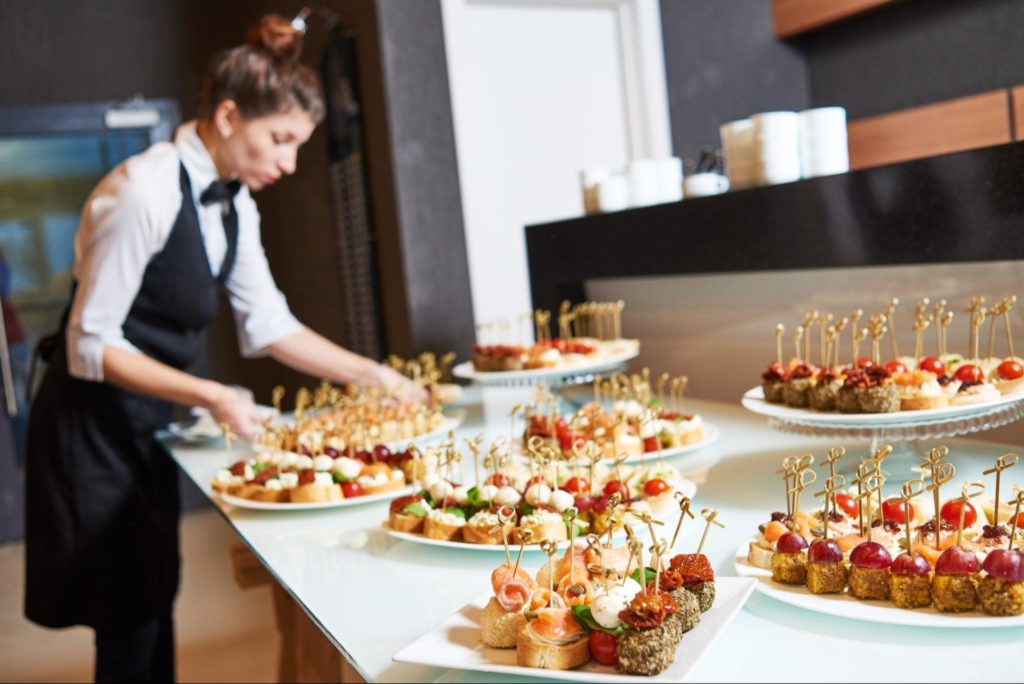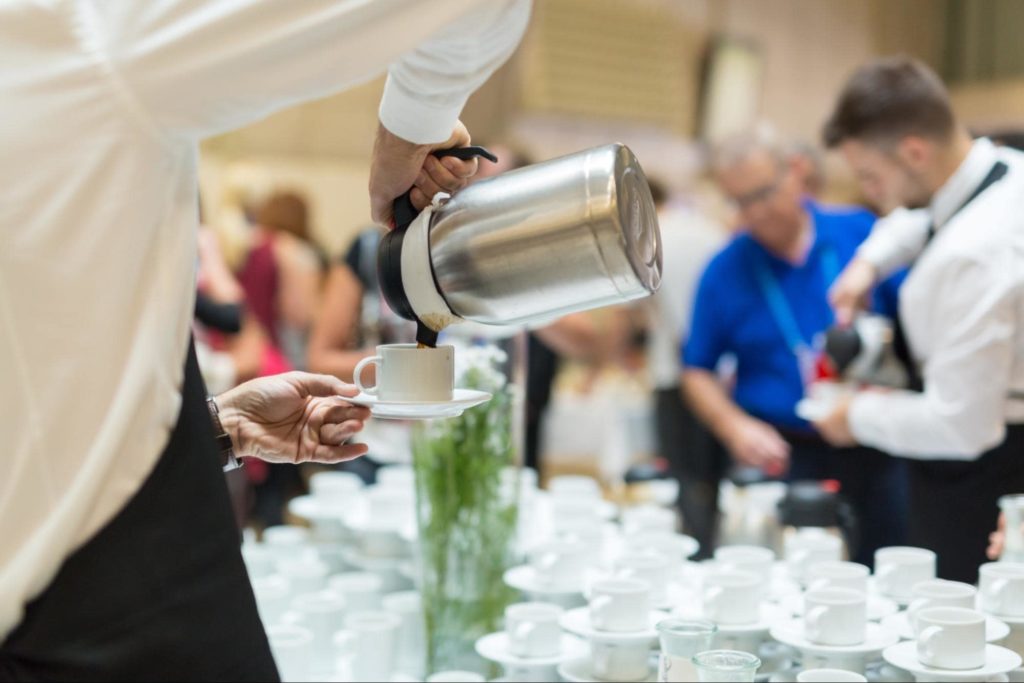Delicious dishes and memorable meals are your passion — and they take up a lot of time. But just like any business, there’s more to think about than simply servicing your customers and taking care of your employees. In this blog, we’ll explore the importance of catering liability insurance, what it covers, and how it can help protect your catering business against liability and financial loss.

What Is Catering Liability Insurance?
Catering insurance is a liability insurance plan designed to respond to claims that may occur in the day-to-day operations of your catering business. Covered claims may include bodily injury, equipment loss, third-party property damage, and more.
Catering insurance typically includes general and product liability as well as equipment coverage options.
Who Needs Catering Liability Insurance?
Businesses in the following spaces should consider having catering liability insurance:
- Wedding and event caterers
- Corporate caterers
- Concession caterers
- Food truck operators
- Banquet halls with catering staff
Essentially, if your business is susceptible to food-borne illnesses and customer accidents like trip and fall injuries, then you need catering insurance. As a catering service, your business operates at multiple locations, which means you need insurance that will protect your business no matter where the work takes you.

5 Top Risks Facing Catering Businesses
Serving delicious food to large numbers of people is a rewarding profession. However, it’s also a business that comes with significant liability and operational risks. When operating a catering business, it’s important to understand what could go wrong, so you can take active steps to prevent them from happening to you. Below are 5 of the top risks facing caterers:
- Foodborne illnesses. This is one of the biggest liability risks in catering. Undercooked or improperly stored food can become contaminated with dangerous bacteria. This can cause sickness — or even death —when consumed. Additionally, employees could forget to wash their hands or allow raw food to come into contact with cooked food.
- Food spoilage. Risks beyond your control such as power outages can lead to food spoilage. Having to deal with purchasing a new order of food is costly and time-consuming.
- Machinery damage & breakdown. If your equipment can’t function, neither can your business. Machinery damage and breakdowns can cause disruptions in production and supply lines, loss of income, frustrated employees, spoiled food, and other potential issues.
- Worker accidents. Accidents occur in a fast-paced working environment. According to the Work Injury Compensation Act (WICA), all businesses are legally liable to pay for injured workers’ medical expenses and lost wages.
- Business property damage. From fires to water leaks, there are a host of elements outside of your control that could cause property damage and cost a lot of money to repair.
What Is the Average Cost of Catering Liability Insurance?
The cost of your event catering insurance policy depends on a few factors. Zip code, coverage limit, team size, and the length of your coverage are all determining factors that make up the cost of catering liability insurance.
While there are no set costs for catering insurance because your business is unique and will require different coverages, an average-sized catering business may pay around $95 per month. If you opt for a Business Owners Policy (BOP) with a policy limit, you may be looking at an annual cost of slightly over $1,000.
Regardless, catering liability insurance is affordable and well worth the investment.
How Catering Liability Insurance Can Help You
It’s a tall order — running a successful catering business. An accident in the kitchen may turn into a delicious recipe, but an accident while you’re catering can lead to legal problems and financial strain. Without catering business insurance, the liability of those costs can seriously affect the future of your catering business.
A reliable catering liability insurance policy allows you to focus on your business without the fear of the unknown. It protects you from accidents and elements outside of your control, and from the associated legal and medical expenses that you would otherwise incur.
Remember, a disgruntled client can also bring a lawsuit against you whether or not you did something wrong. Fortunately, a good catering insurance policy will protect you from both outrageous claims and honest mistakes.

What Other Types of Insurance Do Caterers Need?
Any business endeavor comes with its own set of risks, some of which requires its own specialized type of insurance coverage. Below are four types of commercial insurance policies that a catering business should consider adding to its existing coverage.
Commercial Auto Insurance
Your catering business probably needs insurance for your catering vans or vehicles. What insurance do you need for a mobile catering van?
- Collision damage
- Comprehensive damage (damage due to events like theft or fallen trees)
- Liability coverage (bodily injury and property damage)
Liquor Liability Insurance
Selling and providing alcoholic beverages is essential for many caterers. However, liquor liability is considered one of the highest risks to a catering company. Without liquor liability insurance, you could be held liable for damages due to over-serving alcohol and serving alcohol to a minor. Additionally, claims of bodily injury or property damage may occur if alcohol is over-served.
Liquor liability insurance for caterers provides coverage for legal fees, settlements, property damage, and medical bills associated with a claim. This type of policy will also help provide coverage if the caterer is sued for physical injury, drunk driving, and third-party injury claims.
Workers’ Compensation
Any catering business functioning above board should have a workers’ compensation insurance policy. It’s another one of those core policies that cover you and your employees.
Commercial Property Insurance
Commercial property insurance goes beyond the building itself. It protects your equipment, important paperwork, and other valuables. Even if you’re renting your current space, commercial property insurance can help protect your business’s most valuable items — such as food storage boxes, outdoor coolers, induction cookers, and other important pieces of catering equipment.
What Is One Day Catering Insurance?
Single event catering insurance, also known as one-time catering insurance, is a liability policy that covers events in case of injuries, property damage, or lawsuits. This coverage is for claims by third parties and covers all events such as weddings, birthday parties, concerts, trade shows, festivals, etc.
This type of policy isn’t recommended for a catering business, as an annual policy will make much more sense financially.